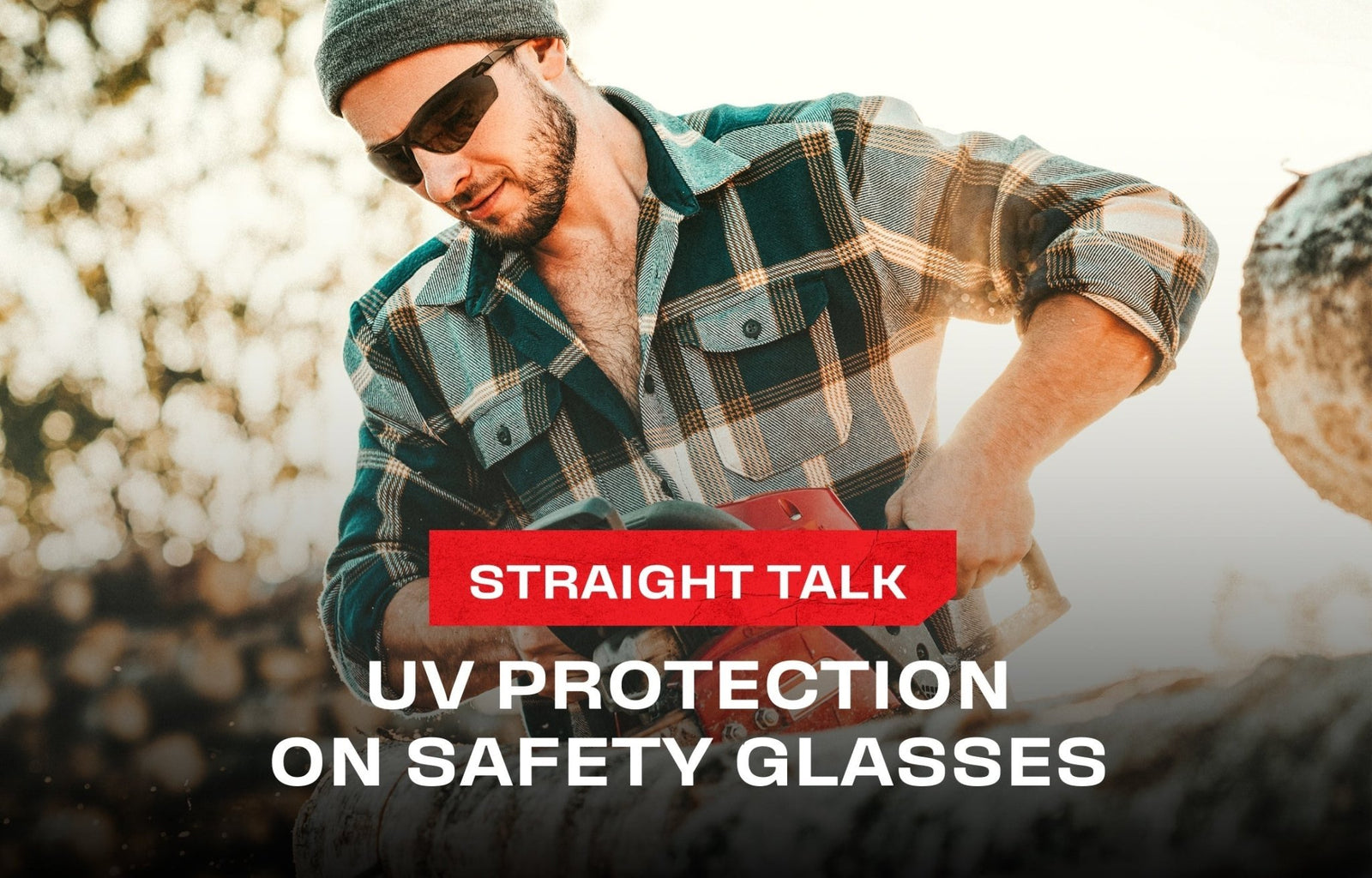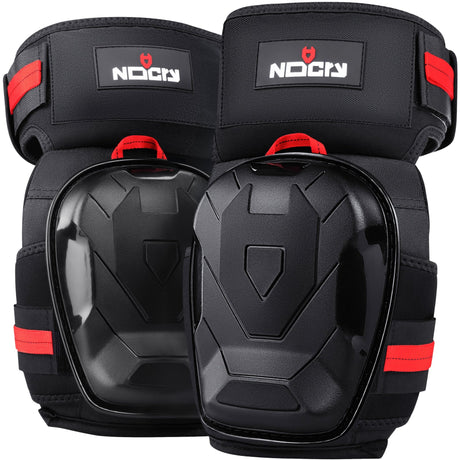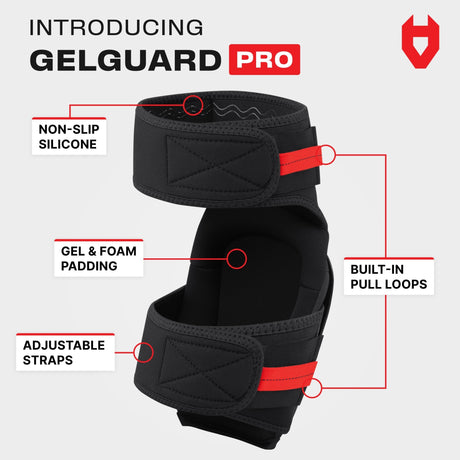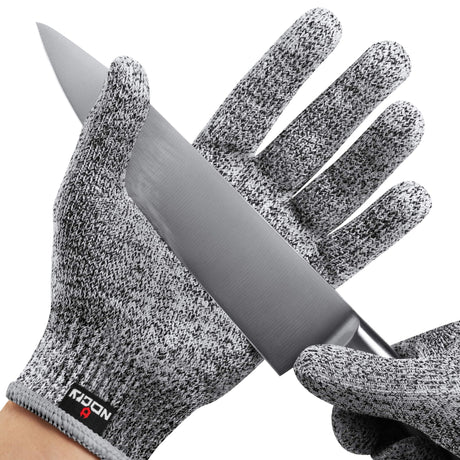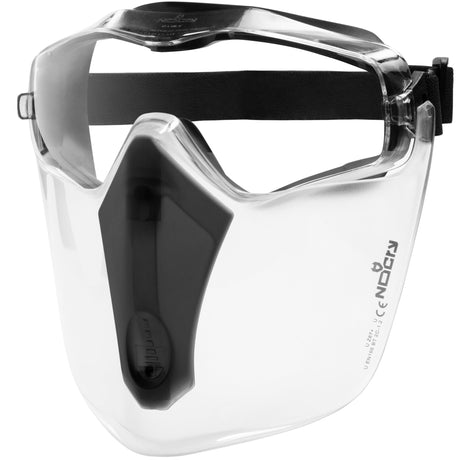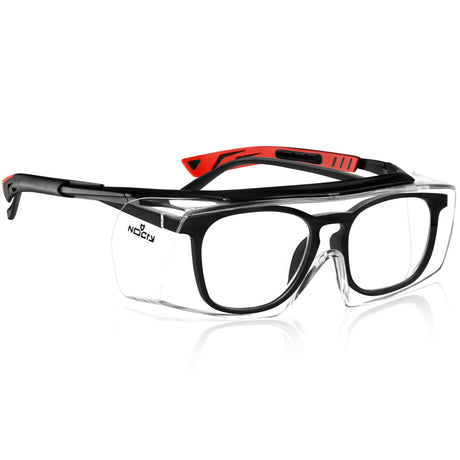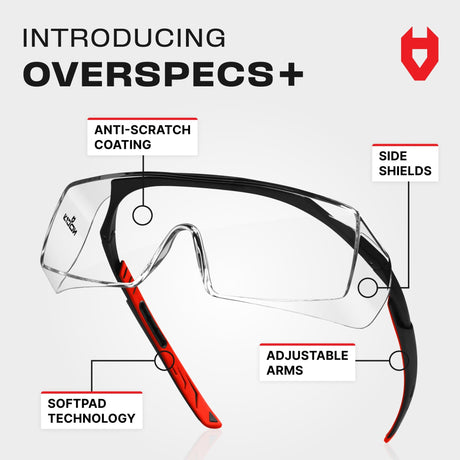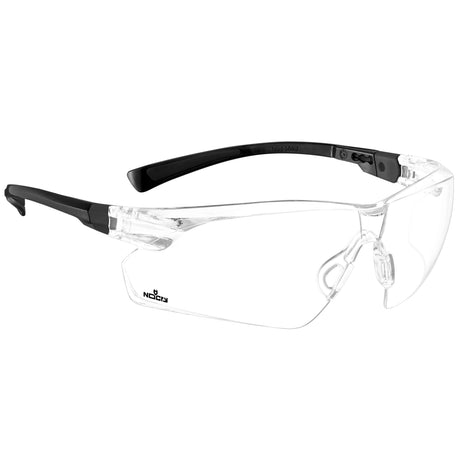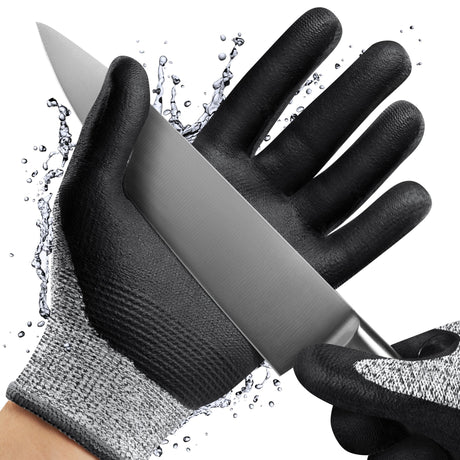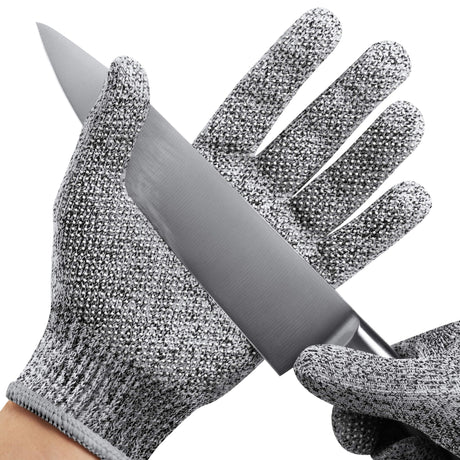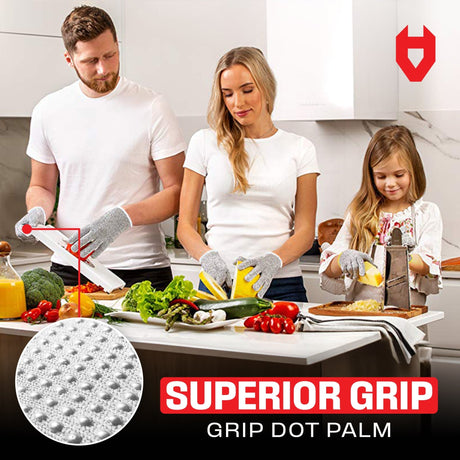Contents
Key Takeaways
- UV protection glasses shield your eyes from harmful UVA and UVB rays, reducing the risk of cataracts, macular degeneration, and skin cancer around the eyes.
- UV400 is the highest standard, blocking nearly 100% of UV rays — look for this rating when shopping for UV protection sunglasses or prescription lenses.
- Not all dark lenses offer protection. UV coatings, especially backside UV protection on glasses, actually block UV rays.
- Options include prescription glasses, UV glasses for computer use, photochromic lenses, and safety glasses like NoCry’s with both UV and impact protection.
- You can confirm UV protection levels through labels like “UV400” or by asking your optometrist to test your lenses.
What Are UV Protection Glasses?
UV protection glasses are designed to block ultraviolet radiation from reaching your eyes. These invisible but powerful rays can damage the cornea, lens, and retina over time. Without proper protection, frequent exposure can contribute to cataracts, macular degeneration, and even skin cancer on the eyelids.
You can find UV protection glasses in various forms: sunglasses, prescription eyewear, and UV-blocking safety glasses. Some models combine UV protection with shatter-resistant lenses, making them suitable for both work and recreation.
Understanding UV Protection Standards on Glasses

To protect your eyes effectively, it’s essential to understand UV protection levels and standards. These ratings tell you how much UV radiation the lenses block, but not all eyewear offers the same protection.
The UV400 label indicates that the lenses block 99–100% of UVA and UVB rays. This is the gold standard and what you should look for in any type of eyewear, whether prescription or non-prescription.
The American National Standards Institute (ANSI) certifies UV protection in safety eyewear. Look for labels like UV-certified or UV-blocking.
Is UV Protection on Glasses Worth It?
Absolutely. The minimal cost of UV-blocking lenses is worth the long-term benefits to your eye health. Over time, UV rays can damage eye tissues, increasing your risk of cataracts, growths on the eye, and cancer.
UV protection sunglasses or prescription glasses with UV coating act as a shield, reducing your risk significantly, especially during outdoor activities or while driving.
How to Tell if Your Glasses Have UV Protection?
To know whether your glasses provide UV protection, check for labels or ask your optometrist. Many lenses have markings like UV400 or 100% UV protection.
If there’s no marking, your optometrist can use a UV light tester to confirm the lenses’ UV-blocking ability. This is especially useful for checking older glasses or online purchases where the labeling might be unclear.
Types of Glasses With UV Protection

There are several types of UV protection glasses available depending on your lifestyle and visual needs:
- Prescription Glasses with UV Coating: Many clear lenses include a special UV-blocking layer. If you wear prescription glasses, ask your provider about this option.
- UV Protection Sunglasses: These are essential for anyone who spends time outdoors. Make sure the label says “UV400” or “100% UV protection,” regardless of lens darkness.
- Photochromic (Transition) Lenses: These adaptive lenses darken in bright light and offer complete UV protection outdoors while remaining clear indoors. They’re a convenient two-in-one solution.
- Computer Glasses with UV Protection: Some UV glasses also block blue light, protecting your eyes from digital strain indoors and UV exposure near windows or artificial lighting.
What Is Backside UV Protection on Glasses?
Most people focus on the front of the lens, but backside UV protection on glasses is equally important. When sunlight reflects off the inner surface of your lenses, especially from bright ground surfaces like sand, snow, or water, it can still reach your eyes.
Backside UV coatings reduce this reflected radiation, offering complete protection. If you’re outdoors often, especially in highly reflective environments, ask your optician for lenses with this feature.
What Are The Benefits of UV Light Protection Glasses?
Wearing UV protection glasses can lower your risk of several serious health problems. They help prevent eye conditions like photokeratitis (a painful eye sunburn), slow the progression of cataracts and age-related macular degeneration, and reduce the likelihood of skin cancer on the eyelids.
They also reduce eye strain and fatigue, especially in bright environments or during extended time outdoors. People with light sensitivity or those recovering from eye surgery often benefit from consistent UV protection as well.

What to Look for When Buying UV Protection Glasses
Always look for the UV400 label or 100% UV protection. This means the lenses filter out all UVA and UVB rays. Don’t assume darker lenses are better; darkness doesn’t equal UV protection. The key is the coating.
If you’re often outdoors or near reflective surfaces, choose lenses with backside UV protection. Consider wraparound styles for extra coverage, especially for sports or prolonged sun exposure. If you wear prescription lenses, ask your optometrist about adding UV protection during your next lens order.
Can Safety Glasses Also Protect Against UV?
Yes — some safety glasses offer both impact protection and UV filtering, but not all do. If you're working outdoors or around UV exposure, look for glasses labeled with UV400 protection and that meet safety standards like ANSI Z87.1 .
For example, the NoCry EyeArmor Pro block 99–100% of UVA and UVB rays and meet ANSI Z87.1 for impact resistance. They’re lightweight with a wraparound fit, making them a solid option for outdoor or mixed-use environments where you need both types of protection.
Conclusion
In today’s environment, with ozone depletion and increased sun exposure, protecting your eyes from UV rays is more than recommended. Whether you wear prescription lenses, UV protection sunglasses, or UV glasses for work, adding reliable UV-blocking features is essential for long-term eye health.
Don’t overlook the importance of front and backside UV protection on glasses, especially in high-glare environments. From ANSI-rated safety gear to stylish prescription options, there’s a solution that can protect your eyes without compromising comfort or clarity.
FAQ
Is UV protection real?
Yes, UV protection is real and essential for maintaining long-term eye health. The added protection far outweighs the small additional cost and can prevent irreversible eye damage.
What is UV protection on glasses?
UV protection refers to a special coating or lens material that blocks ultraviolet radiation from reaching your eyes. It helps prevent long-term damage, including cataracts and macular degeneration.
Does OSHA require UV protection glasses?
OSHA requires eye protection against hazards like UV radiation when present on the job. While UV protection isn’t always named directly, safety glasses must meet ANSI Z87.1 standards, many of which include UV400 protection. For outdoor work, UV-blocking lenses help meet OSHA safety rules and protect long-term eye health.
Are all sunglasses UV protected?
No. Some inexpensive or fashion sunglasses don’t block UV rays. Always check for a label that confirms UV400 or 100% UV protection.
Do prescription lenses come with UV protection?
Many do, but not all by default. Ask your eye care provider to include UV-blocking coatings or ensure the lens material itself offers protection.

